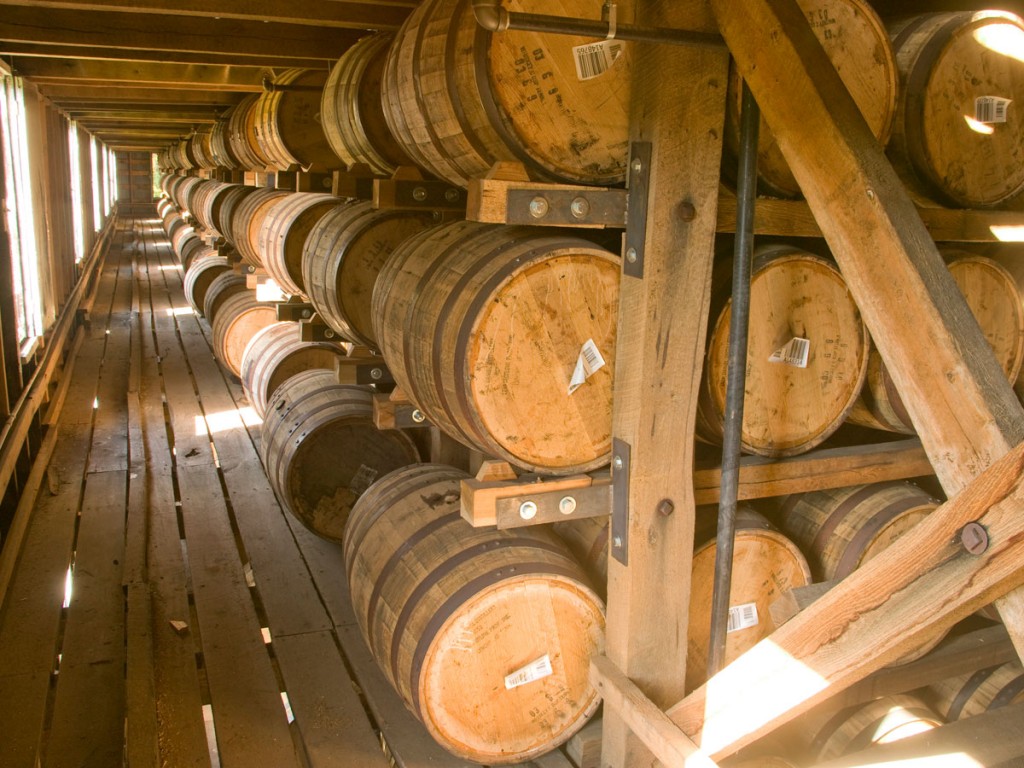Supply Lines is a daily newsletter that tracks Covid-19’s impact on trade. Sign up here, and subscribe to our Covid-19 podcast for the latest news and analysis on the pandemic.
American rum distillers and French winemakers celebrated this month when the U.S. and European Union suspended tariffs on billions of dollars of each other’s exports.

The products getting a reprieve on duties were part of a dispute over subsidies to the world’s two biggest aircraft makers, Boeing Co. and Airbus SE. The whiskey industry still faces 25% duties that are the result of a still-unresolved, separate front in former President Donald Trump’s transatlantic trade war. The tariffs are set to double to 50% on June 1.
The duties are hitting American distillers from Brown-Forman Corp.—the maker of the iconic Jack Daniel’s brand and Woodford Reserve bourbon—to hundreds of small craft producers. The pain is compounded by a plunge in demand from restaurants and bars due to the pandemic, and closures of tasting rooms due to social-distancing measures.
The duties show how unrelated industries get caught up in trade wars when countries look to maximize the political impact of reciprocal duties. The whiskey tariffs particularly hit Kentucky, the biggest bourbon-producing state and home of then Senate Majority Leader and Trump ally Mitch McConnell.
“There are days when we woke up and said ‘How did we get selected for this position?” said Lawson E. Whiting, president and chief executive officer of Louisville, Kentucky-based Brown-Forman. “We’ve been a casualty of a very challenging trade war.”
The whiskey tariffs are the EU’s response to Trump’s June 2018 steel and aluminum duties that are still in place. The U.K., which came to its own reprieve in the aircraft-subsidy dispute with the U.S., has also kept the whiskey duties.
The industry wants the U.S. to work with the EU and U.K. to remove the tariffs. One likely path would be through negotiating an end to the metals dispute.
Katherine Tai, President Joe Biden’s nominee for U.S. Trade Representative, is aware of the imminent EU whiskey-duty raise and pledged to review U.S. use of the metals tariffs, she said in a written response to questions from senators during her confirmation process in February.
European alcohol and American spirits including rum and vodka that saw tariffs suspended this month were part of $11.5 billion in EU and U.S. industrial, agricultural and consumer goods that got a temporary respite related to the Boeing-Airbus case. But whiskey is the largest U.S. spirits export globally.
Squeezing Profit
When the whiskey tariffs went into effect almost three years ago, Brown-Forman decided to absorb the cost, thinking that the duties wouldn’t remain in place more than a few months, Whiting said. They’ve resulted in annual expenses of $80 million, squeezing the company’s profit margins and restraining hiring and expansion, he said.
Brown-Forman—a global business with famous brands and more than $3 billion in annual revenue—has been able to mostly maintain sales. But many smaller distillers have seen exports to Europe tumble.
Chicago’s KOVAL Distillery is one of them. Owner Sonat Birnecker Hart left behind her job as a tenured university professor to start the operation on the city’s north side in 2008. KOVAL, the first distillery opened in Chicago since before Prohibition in the 1920s, was an early mover in a boom in American craft-whiskey production. It now has almost 30 full-time employees and about $7 million in annual revenue.
The company has been exporting for more than a decade; prior to the tariffs in 2018, sales to the U.K. and EU climbed by about 25% annually.
Since the tariffs took effect in mid-2018, exports to Europe have fallen by about 60%. While the company sells to 55 markets globally from Australia to Russia, and has continued to grow in the U.S., it put off plans to expand into eastern Europe, and sales overall have expanded slower than they would have without the duties in place.
American whiskey sales to the EU, the U.S.’s largest export market, plunged 37% to $440 million since the tariffs went into effect in 2018, according to the U.S. Distilled Spirits Council of the U.S. Exports to the U.K., the fourth-biggest buyer, have been slashed by more than half to $71 million.
Like Brown-Forman, KOVAL has absorbed the cost of the duties. That’s meant less money available for marketing, and distributors and retailers are more wary of promoting craft brands that have trouble predicting their future costs, Birnecker Hart said. It also has a trickle-down effect on the company’s suppliers, from farmers of millet, corn and oats to the glass-makers that produce its bottles.
American distillers are trying to avoid raising prices in Europe in order to stay competitive with imports from places including Canada, Taiwan and Japan—and from Europe’s own craft brands, she said.
“Having to eat the cost of the tariffs to remain competitive and stay on the shelf is a huge problem,” Birnecker Hart said. “We’re living with so much uncertainty right now because of the pandemic. This adds another layer.”










